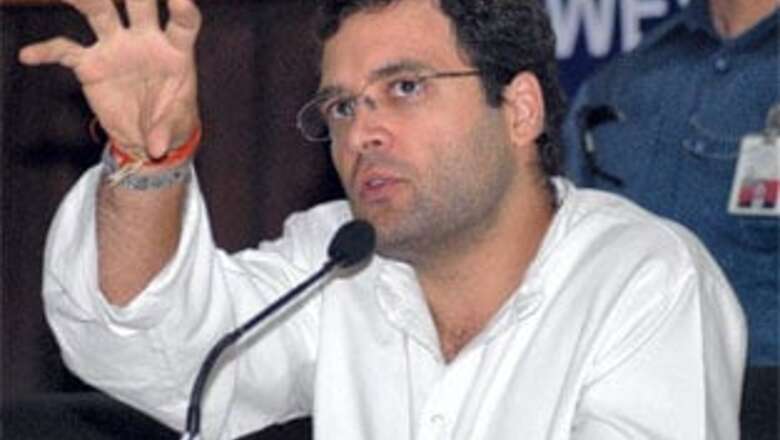
views
New Delhi: A politician and civil society groups urged editors of English newspapers and TV channels to correct the deficit in rural coverage instead of blaming the neglect on the bias of urban audiences and the pressure to cut cost. “The countryside is changing and English media must reflect that change”, said Rural Development Minister C P Joshi, who had become member of the Rajasthan Legislative Assembly at the age of 29 years.
“English journalists must develop rural sensibilities. Like Rahul Gandhi go and see for yourself,” Joshi was alluding to the Congress leader’s night outs in Dalit homes to experience their life first hand, like method actors.
“The texture of India must be reflected in its media,” said Aruna Roy, who had quit the Indian Administrative Service in 1974 to organise agricultural workers in Rajasthan.
“We continue to believe that you are the Fourth Estate. That is our hope, confidence and trust,” added Roy.
The message that came from Vinod Mehta was not of hope but of gloom. "English media audiences and their staff are urban. Rural news will not grab their attention unless the pictures are distressing enough to be riveting", said the Editor-In-Chief of Outlook group of publications. Competition is acute and proprietors are chasing shrinking advertising revenues. “Editors are not in control of editorial agendas,” said Mehta, who had earlier quit editorships for not being able to have his way.
The exchange of views happened at a debate, “Can Rural Reporting Be Sexy,” that the Foundation for Media Professionals had organised in the Capital on the occasion of Republic Day. (Roy disapproved of the word “sexy,” but it was explained that this was journalese for “engaging;” it was not intended to be demeaning to women). The debate was the first for this year and the eight in a series since December 2008. The Foundation (www.fmp.org.in) has been set up by a clutch of senior journalists to promote quality journalism and uphold media freedom.
Jean Dreze said the media is looking at its audiences as consumers, not readers and viewers. They are not in the business of selling news but of sending people to advertisers. He did not agree that there was no urban interest in rural folk. “It is human nature,” said the Belgian economist who has made India his home, and its poor his cause.
Dreze said free-market advocates had initially attacked rural jobs scheme that legally guarantees up to 100 days of work a year as a waste of public money. Even the report of the Comptroller and Auditor General was twisted. Later the scheme was praised for raising rural incomes and cushioning the shock of the financial meltdown. It was even credited with returning the UPA to power. “What Vinod (Mehta) said is not the last word. It is a battle,” said Dreze who had helped draft the rural jobs bill. He credited his personal contacts in the media for diluting corporate opposition to the rural jobs scheme.
“You have a crisis when newspapers do not play their role, “ said Sunita Narain, an environmentalist known for skewering cola multinationals for pesticide residues in their products. She also doubles up as the editor of a publication. For Narain there are interesting stories and un-interesting ones; whether they are urban or rural is of little relevance.
"People in the United States think that global warming is a problem of the developing countries because their media has not cared to inform them that they are individually the biggest polluters. If the Indian media kept its urban audiences similarly ignorant about the countryside, we would be big as mistake," she said.
Narain said journalism was about reporting and you cannot tell a story if you are not there. She did not believe that rural reporting was expensive. In any case it was the responsibility of editors to fight for budgets. She wondered whether a publicly funded public service broadcaster would plug the gap, just as publicly funded elections were seen as an answer to electoral malpractices.
"English media was not blanking out rural issues," said Arindam Sengupta, Executive Editor of Times of India citing his newspapers coverage of food prices, rural hunger, primary schooling and rural healthcare. But they cannot have the same share as urban issues. He was opposed to “affirmative action,” or a “quota” for rural coverage.
"The right to know was no less than the right to live," said Nikhil Dey, a fellow traveler with Aruna Roy. Prabhash Joshi, the late editor of Jansatta, had made that connection when about 300 agricultural workers had demanded to know to know whether their contractors were passing on wages that the Government was paying them. That was in 1996 in Beawar in Rajasthan. From that small protest emerged the Right to Information. It was rural workers who gave the media the tool to discharge its watchdog function. It is time for the media to pay back.

















Comments
0 comment